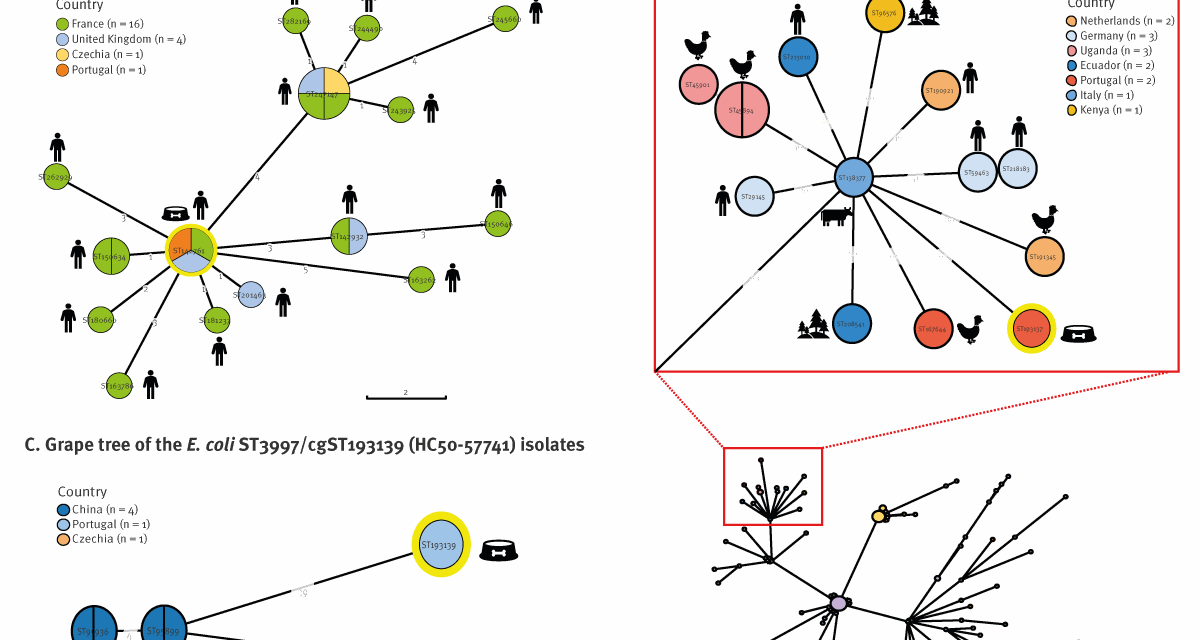A recent study conducted in Portugal has shed light on a concerning issue surrounding raw meat-based diets (RMBDs) for pets, particularly dogs. Despite stringent European Union (EU) regulations, which aim to ensure the microbiological safety of animal by-products used in pet food, findings reveal that even reputable European brands of RMBDs may harbor multidrug-resistant (MDR) Salmonella and Escherichia coli, some resistant to Colistin, a critical last-line antibiotic.
Published in Euro Surveill, the study, led by researchers Marisa Ribeiro-Almeida and colleagues, sampled 55 RMBD products from popular pet stores and supermarkets in the Porto metropolitan area of Portugal. The investigation targeted 25 manufacturers, including 21 global brands, to assess the prevalence of MDR bacteria potentially harmful to both pets and humans.
Using standard International Standard Organisation (ISO) detection methodologies, the researchers identified non-typhoidal Salmonella and MDR Enterobacteriaceae populations in a significant portion of the sampled RMBDs. Alarmingly, all 22 wet RMBD items examined contained MDR Salmonella and Enterobacteriaceae. Of particular concern was the discovery of Salmonella strains belonging to the ST34 genotype, known for its potential to cause human pandemics.
Dr. Patrícia Antunes, one of the authors of the study, emphasized the implications of the findings: “Our results strongly suggest that conventionally processed pet food is a safer option, emphasising the critical role of heat treatment in pet food production for effectively mitigating microbiological hazards.”
The rise in popularity of RMBDs among pet owners stems from the belief that minimally processed foods are healthier and more nutritious for pets. However, the study underscores the potential risks associated with raw diets, especially considering the zoonotic transfer of pathogens from animals to humans. Direct human contact with infected meat, whether at the slaughterhouse or during meal preparation, poses a significant risk, particularly given the MDR phenotypes observed in the bacteria isolated from the RMBD samples.
Furthermore, the study revealed high levels of resistance to commonly used veterinary antibiotics such as β-lactams, fluoroquinolones, tetracycline, and sulphonamides among the identified bacteria. This resistance pattern mirrors trends seen in other European studies on pet food samples, indicating a broader issue that warrants urgent attention.
The findings highlight the need for increased public awareness regarding the potential risks associated with RMBDs for pets. With misinformation readily available, particularly on social media platforms, pet owners must be informed about the importance of proper food handling and the advantages of conventionally processed pet foods.
As the debate over raw versus processed pet diets continues, this study serves as a stark reminder of the complex interplay between pet nutrition, public health, and antibiotic resistance. Further research and proactive measures are essential to safeguarding the health of both pets and their owners in the face of emerging microbiological threats.
Journal Reference: Ribeiro-Almeida Marisa, Mourão Joana, Magalhães Mafalda, Freitas Ana R, Novais Carla, Peixe Luísa, Antunes Patrícia. Raw meat-based diet for pets: a neglected source of human exposure to Salmonella and pathogenic Escherichia coli clones carrying mcr, Portugal, September 2019 to January 2020. Euro Surveill. 2024;29(18):pii=2300561.












